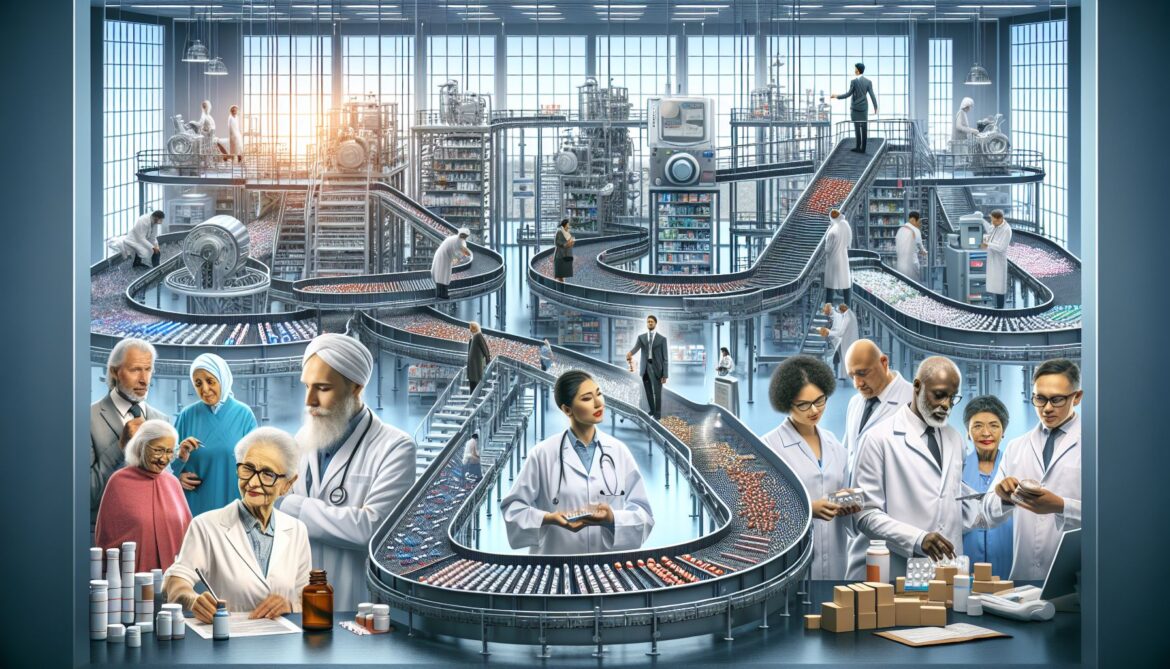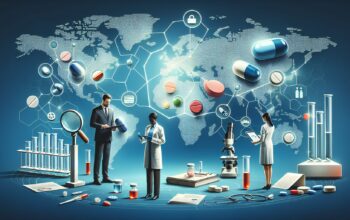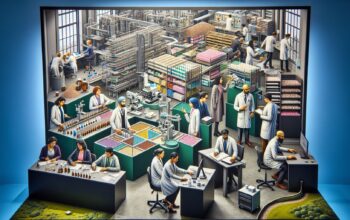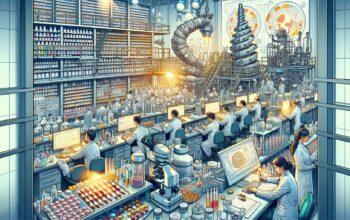
The pharmaceutical industry plays a critical role in our lives, providing us with medicines that cure ailments, alleviate pain, and enhance our overall well-being. From the development of new drugs to their distribution, let’s take a closer look at the fascinating world of medicines and the pharmaceutical industry.
Introduction
Medicines have been used for centuries to treat illnesses and diseases, but it is in the last few decades that advancements in pharmaceuticals have truly revolutionized healthcare. With an ever-increasing understanding of the human body and its complexities, scientists are now able to develop medicines that target specific diseases and conditions more effectively.
The Drug Development Process
The journey of a drug begins in the research and development phase. Scientists explore potential compounds that could have therapeutic properties, conduct laboratory tests, and screen candidates for safety and efficacy. Promising drug candidates are then subjected to clinical trials, where they are tested on a large group of volunteers under strict supervision.
These clinical trials consist of three main phases. Phase 1 focuses on establishing the drug’s safety and determining the optimal dosage. Phase 2 involves assessing the drug’s effectiveness and further evaluating its safety on a larger group of patients. Finally, Phase 3 involves extensive testing to confirm the drug’s benefits, side effects, and any other relevant information before seeking regulatory approval.
Regulatory Approval and Marketing
After successfully completing the clinical trials, pharmaceutical companies must seek approval from regulatory bodies such as the Food and Drug Administration (FDA) in the United States, the European Medicines Agency (EMA) in Europe, or other local regulatory authorities around the world. These agencies evaluate the drug’s safety, efficacy, and quality before granting marketing authorization.
Following regulatory approval, pharmaceutical companies can market their medications to healthcare professionals and consumers. Extensive marketing campaigns are often conducted to raise awareness about these new drugs and their benefits. However, the promotion of medicines must adhere to strict guidelines to ensure that the information provided is accurate, balanced, and transparent.
Manufacturing and Distribution
Once a drug is approved and ready for production, the pharmaceutical industry must ensure it is manufactured, packaged, and distributed on a large scale. Manufacturing generally takes place in specialized facilities that must adhere to strict regulations, such as Good Manufacturing Practices, to guarantee the quality, purity, and consistency of each medication batch.
Distribution networks play a vital role in ensuring timely access to medicines around the world. From wholesalers to pharmacies, hospitals, and online retailers, these networks must navigate complex supply chains to deliver medicines to the end consumer. Proper storage conditions, transportation logistics, and regulatory compliance are crucial factors in maintaining the integrity and efficacy of the medications.
Conclusion
The pharmaceutical industry continually strives to improve our health and well-being through the development of innovative medicines. From the lab to the clinic, meticulous research, rigorous testing, and regulatory processes ensure that these medications are safe, effective, and of the highest quality. Thanks to the dedication and persistence of scientists, healthcare professionals, and regulatory agencies, we can rely on medicines to combat diseases and improve our quality of life.


